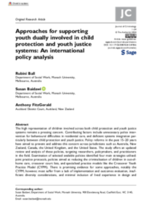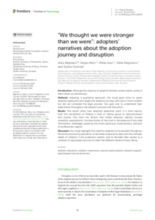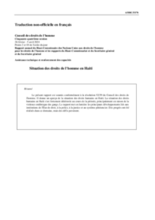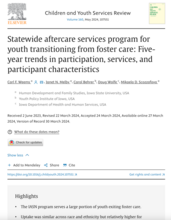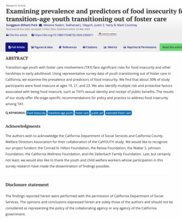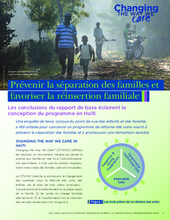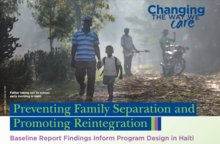This page contains documents and other resources related to children's care in the Americas. Browse resources by region, country, or category.
Displaying 41 - 50 of 1438
This study offers an updated review and analysis of policy reforms across both the child protection and youth justice systems in jurisdictions such as Australia, New Zealand, Canada, the United Kingdom, and the United States, targeting researchers, policymakers, and practitioners in the field.
Adopting a qualitative approach, this study gave voice to seven adoption applicants in Romania who began the adoption journey with one or more children but did not complete the legal process. The goal of the researchers was to understand their experiences throughout the adoption process and disruption. The present study is part of a larger research project that focused on the resilience of the adoptive family in Romania.
Le présent rapport est soumis conformément à la résolution 52/39 du Conseil des droits de l'homme. Il donne un aperçu de la situation des droits humains en Haïti. La situation des droits humains en Haïti s'est fortement détériorée au cours de la période, principalement en raison de la violence endémique des gangs. Le rapport met en lumière les principaux développements liés aux institutions de l'État de droit, à la police, à la justice et au système pénitencier. Des progrès ont été réalisés dans ce domaine, mais des défis persistent.
The purpose of this study was to examine trends in participation and understand the experiences of youth transitioning from foster care who were involved in the Iowa Aftercare Services Program.
This convergent mixed methods study builds knowledge surrounding preparedness among a sample of young adults with histories in out-of-home care in the U.S.
Using representative survey data of youth transitioning out of foster care in California, the authors of this study examine the prevalence and predictors of food insecurity. They found that about 30% of study participants were food insecure at ages 19, 21, and 23.
This study examines the health of Canadian youth in care and their engagement with the Canadian health care system on a population level.
A comprehensive survey of kinship care policies identifies increasing efforts by states, the District of Columbia and Puerto Rico to promote kinship care and support kinship caregivers of children and youth who are known to the child welfare system.
Prévenir la séparation des familles et favoriser la réinsertion familiale est une enquête de base menée par Changing the Way We Care Haïti visant à informer la conception d'un programme de réforme des soins axé sur la prévention de la séparatio
This is a comprehensive baseline survey by Changing the Way We Care Haiti aimed at informing the design of a robust care reform program focused on averting family separation and fostering sustainable reintegration.


